IMDEA Networks

“The continuous need to understand better the small and the big things of the world around and within us is fascinating”
16 February 2018
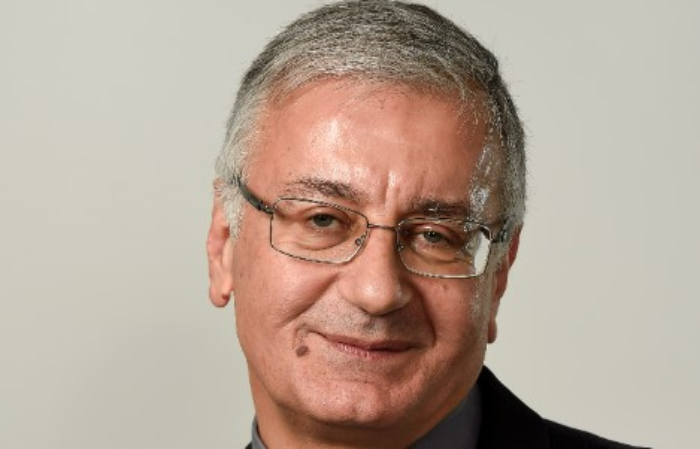
As his research stay at IMDEA Networks comes to an end, we interview Prof. Ioannis Stavrakakis, who joined us in March 2017 as a Visiting Professor. During this period he has also occupied a visiting professorship at University Carlos III of Madrid and the prestigious Chair of Excellence from the Comunidad de Madrid.
1. To begin this interview, we are curious about how you were called to the life of science. When and why did you decide to become a scientist?
Probably the first seeds of admiration for science were implanted indirectly by my family when I was a kid, as I was observing their appreciation for the Scientist Magazine. That started to become more substantiated in my mind during the high school years, through my exposure to science subjects, especially mathematics, physics and ancient Greek. Yet, my decision to study Electrical Engineering was not reflecting an adequate understanding at the time of what a scientist is. The beauty of learning in credible ways, discovering the (current) ground truth or humans’ pioneering advances in mastering it and having the capability to stretch the current knowledge beyond, have all blended very nicely with my personality. There is so much to learn and achieve and so little that we have mastered so far, as the greatest scientists humbly admit… The continuous need to understand better the small and the big things of the world around and within us is fascinating.
2. What training and background do you have as a researcher?
I was educated initially in Electrical Engineering in Greece, with an emphasis in mathematics, telecommunications-computers and electricity. My education was continued in the USA, where I focused on telecommunication networks, engaging mathematical principles as well as emerging computer networking systems. Later in my career I realized the benefits of the breadth and depth of my studies carried out in very diverse educational environments.
My research focus has been at the intersection of Mathematics, Computer Science and Engineering. My research training was formally initiated during my Ph.D. studies in USA and carried through over the decade of my academic career in American universities. The focus of my research over that period was on multi-user communication protocol analysis and design, network resource allocation and traffic management. The emphasis was on stochastic modeling and evaluation methodologies that turned out to be an asset throughout my career, supporting future research efforts in a continuously changing technological environment where the networking principles are largely remaining unchanged. That line of research continued over the almost two decades of my academic presence in Europe that followed and was applied to most of the emerged networking environments (streaming, peer-to-peer, mobile, ad hoc, autonomic, delay tolerant, information-centric, social) and the major Future Internet and 5G Networking initiatives. The most notable distinct recent research focus has been on human driven decision-making in distributed competitive environments, which calls for a consideration of sociological aspects, the boundedness of human rationality and the development of new inter-disciplinary methodologies and tools.
3. How did you get the opportunity to come and work in Madrid? What institutions have you been connected to so far?
Coming to work in Madrid was a long standing promise to myself and Prof. Arturo Azcorra, Director of IMDEA Networks. Since the early 2000’s when we first met, we interacted in the context of EU initiatives/projects for almost a decade. The initial close relation turned into a mutual appreciation and respect that kept us in close contact for all these years. Following the completion of a 4-year term of chairing the Department of Informatics and Telecommunications of the National and Kapodistrian University of Athens, the time was right for me to return full time to my research activities and visit research institutions abroad. The award of the Chair of Excellence by the Comunidad de Madrid gave me the opportunity to start implementing my long standing promise to come and work in Madrid.
During my professional career I have held tenured positions at the University of Vermont (USA), Northeastern University (USA) and the National and Kapodistrian University of Athens (Greece). Besides, I have spent time with the CNR Institute (Italy), Queens University (Canada) and the Technical University of Darmstadt (Germany).
4. What interested you most about the IMDEA project? What made you want to become involved?
I have been involved with IMDEA Networks in two distinct capacities.
First, I was excited by Prof. Arturo Azcorra’s vision in 2006 to establish a world class, international research institute in networking in Madrid, that was largely absent from Southern Europe and existed, to some extent, in extremely few places in Europe. In my mind, that was a weakness for Europe in comparison to the research establishments in networking in USA or even Asia. I was excited to help in this effort and I immediately accepted an invitation to be involved as a member of the Board of Trustees and the Scientific Council. After having served in that capacity for about a decade until recently, I am extremely happy to have followed the exciting years of IMDEA Networks’ establishment and growth as a truly international and high quality research Institute, on a par with top research organizations worldwide.
IMDEA Networks’ success made it a very attractive and a highly desirable place for me to be involved with in another capacity, that of a visiting professor, and interact with the wealth of its top researchers it has acquired. The Chair of Excellence Initiative by the Comunidad de Madrid provided an excellent instrument for materializing this research collaboration jointly with IMDEA Networks and the closely associated and highly regarded UC3M.
5. In what research lines have you been working? What specific results have you achieved?
IMDEA Networks’ research involvement is fairly wide and there has been ample opportunity for interacting in a number of areas. The research activities have largely been focused on 5G networking including human/behavioral aspects that increasingly affect the networking designs. 5G research is currently addressing extremely difficult scientific challenges in different areas, in order to develop the next generation networking environment enabling unprecedented connectivity (including the exploding Internet of Things), extremely high data rates, up to almost zero latency and new resource efficiencies and economies. During my visit I have worked on dynamic resource sharing and pooling, aiming at developing innovative and efficient mechanisms for sharing the highly diverse and distributed – in space, time, ownership and other dimensions – resources in 5G. In addition, we have worked on the development of efficient traffic, congestion and competition management, aiming to achieve the stringent Quality of Experience (QoE) requirements foreseen in 5G. Behavioral and social aspects affecting critical decisions have also been explored, with the objective of understanding how humans – who are assuming an increasing role in 5G as service/content/resource producers and consumers – behave and relate to others, and how self-awareness, behavioral and social aspects affect performance and can be exploited in more efficient designs.
6. Did you know Spain before joining IMDEA? What do you like best about Madrid
It is hard to claim knowing a country without having spent some time living in it. Nevertheless, Spain has a rich and exciting history I am familiar and excited with; it is a Mediterranean country as well as Greece, where I am from, so certain similarities are unavoidable. Having visited Madrid frequently over the last decade, I have been fascinated by the beauty of the city, its monuments and architecture, parks, museums, cultural life, food, restaurants and the people themselves. Madrid has about the right level of “grandiose” commensurate with the human dimension and the right level of sophistication, blended with a highly artistic touch. Even the culinary approach in Madrid seems to be in line with this: the right level of processing and complexity, yielding a sufficiently sophisticated outcome without suppressing the underlying ingredients and obscuring their subtle original taste and character.
- Addressing the students during the graduation ceremony as director of the Department of Computer Science and Telecommunications at the National and Kapodistrian University of Athens
- Returning to Charlottesville (Virginia, USA), the place where he launched his research career
- Travelling in Northern Greece, at Kastoria
- Returning to Charlottesville (Virginia, USA), the place where he launched his research career


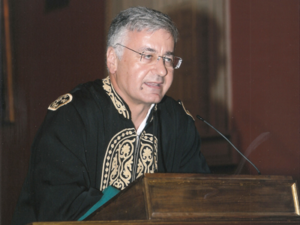
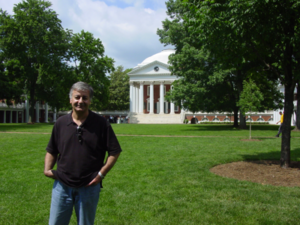
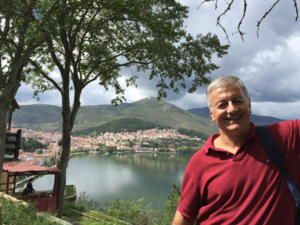
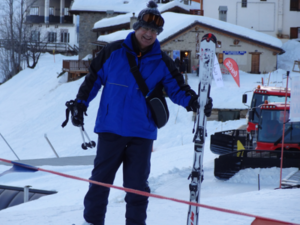
Recent Comments